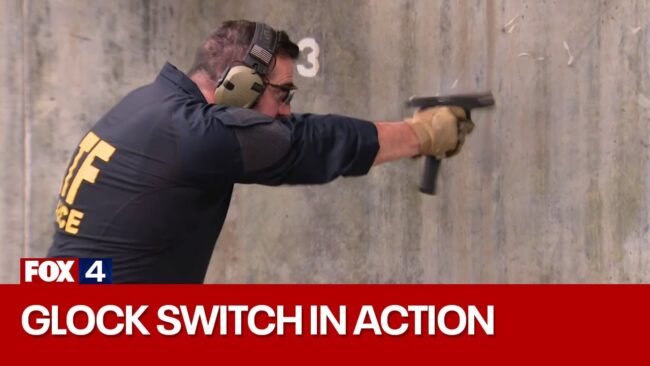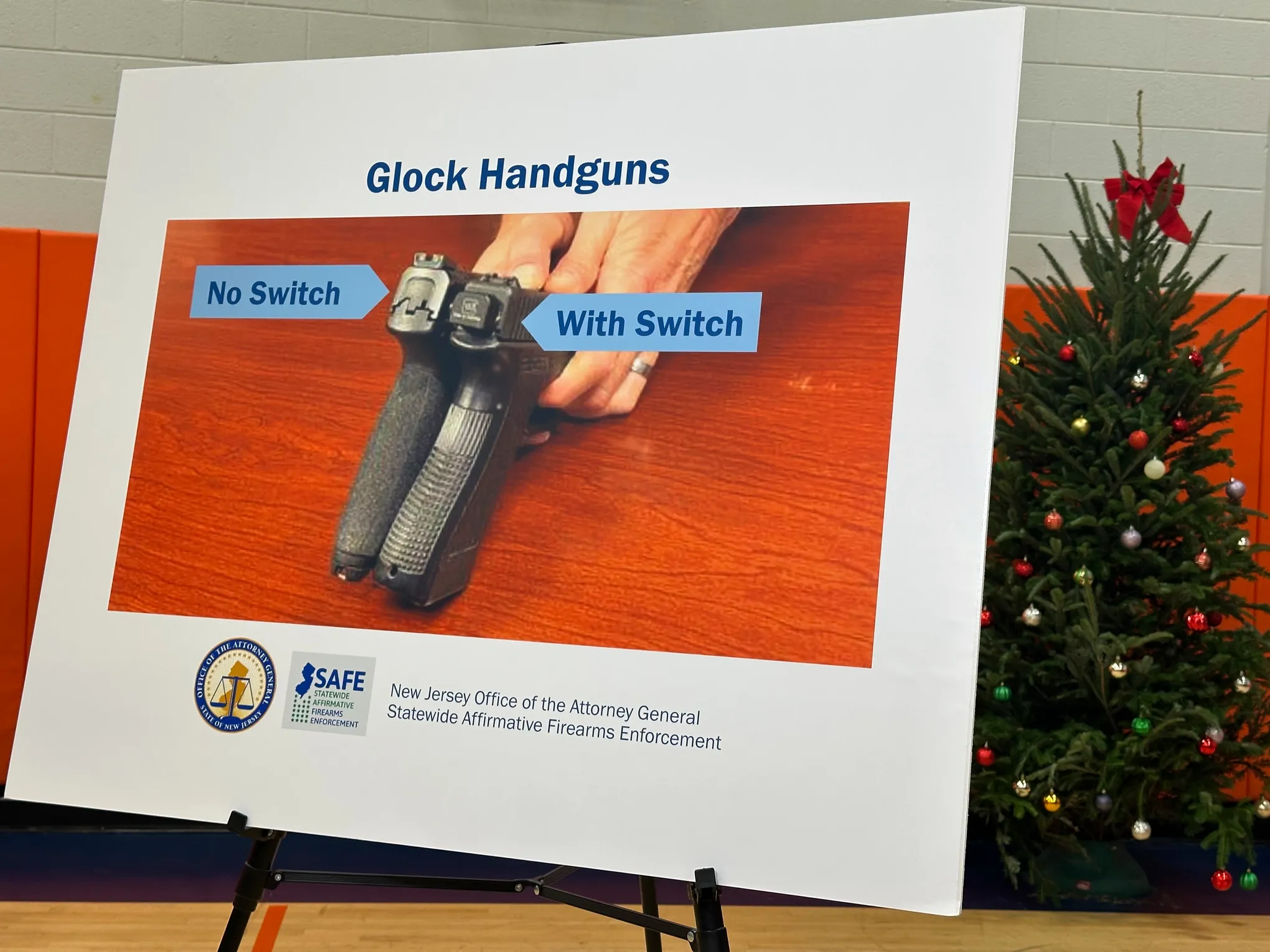The Glock pistol has become an iconic firearm since its introduction in the early 1980s. Known for its reliability, ease of use, and wide adoption by
The Glock pistol has become an iconic firearm since its introduction in the early 1980s. Known for its reliability, ease of use, and wide adoption by police and civilians worldwide, the Glock continues to be a top choice in handguns. However, in recent years, the term “Glock switch” has gained attention in firearm communities, law enforcement, and media. This small device has stirred up controversy and legal action due to its capability to turn a standard Glock into a fully automatic weapon.
This article breaks down the Glock switch—what it is, how it functions, its legal implications, and the concerns surrounding its use.
Understanding the Glock Switch
The Glock switch, often called a machine gun conversion device or auto sear, is a tiny component that can be installed on certain Glock pistols. By modifying the pistol’s internal mechanics, the switch allows the gun to fire rounds automatically when the trigger is held down, instead of firing only one round per trigger pull like a normal semi-automatic pistol.
Typically, Glock pistols fire semi-automatically: one bullet per trigger pull. The Glock switch bypasses or changes the trigger mechanism to enable continuous fire, similar to fully automatic firearms.
Technical Operation of a Glock Switch
Glock pistols operate with a striker-fired system. When a shooter pulls the trigger, the striker is released to hit the primer of a cartridge, firing a bullet. The gun’s slide then cycles to eject the spent cartridge and load the next one.
The Glock switch works by interrupting or modifying the trigger bar or sear mechanism inside the pistol. This change allows the trigger to remain engaged while the striker resets and fires repeatedly as long as the trigger is depressed.
Because of Glock’s modular design and relatively simple mechanism, the switch can be attached without permanently altering the gun’s frame or major parts, making it easy to install and remove—an important factor contributing to the device’s popularity and danger.
Legal Status of Glock Switches
United States Federal Law
In the U.S., the Bureau of Alcohol, Tobacco, Firearms and Explosives (ATF) classifies any device that converts a semi-automatic firearm to fully automatic as a machine gun under the National Firearms Act (NFA). Possession, manufacture, or distribution of such devices without proper registration is illegal and punishable by federal law.
- Glock switches fall under this regulation and are considered machine guns.
- Individuals caught with an unregistered Glock switch face serious felony charges.
- The ATF frequently updates its guidance to clarify that even small conversion devices like Glock switches meet the legal definition of a machine gun.
State Laws
Many U.S. states have their own laws regulating or banning machine guns and conversion devices. Some states impose harsher penalties or stricter controls, while others align with federal statutes.

International Law
Outside the U.S., many countries have prohibitive laws regarding automatic weapons and conversion devices. Glock switches are often banned or highly regulated due to their potential to increase firearm lethality.
Why Glock Switches Are a Cause for Concern
Increased Firepower and Danger
A Glock switch can transform a simple handgun into a weapon capable of firing multiple rounds per second. This rapid-fire capability makes the pistol far more lethal and difficult to control, increasing the risk of accidental or intentional harm.
Criminal Use
Law enforcement agencies have reported an uptick in Glock switches being used in criminal activities. The small size and ease of concealment make these devices attractive to criminals wanting to enhance their firepower illegally.
Public Safety and Enforcement Challenges
Because Glock switches are small and often inconspicuous, detecting and regulating them is challenging. They can be hidden easily and transported without raising suspicion, complicating law enforcement efforts.
Glock Switch vs. Other Firearm Modifications
Not all firearm modifications are illegal or dangerous. Many legal accessories, such as extended magazines, optics, or triggers, improve accuracy or handling without altering the fundamental firing mechanism.
The Glock switch is distinct because it changes the rate of fire—turning a semi-automatic into a fully automatic weapon. This shift elevates it beyond a cosmetic or performance modification into a serious legal and safety concern.
Risks and Dangers of Using a Glock Switch
Mechanical Failure and Injury
Poorly manufactured or improperly installed Glock switches can cause mechanical failures, leading to jams, misfires, or even injury to the user.
Legal Consequences
Possession or use of a Glock switch without the proper licensing carries severe legal penalties, including hefty fines and prison sentences.
Increased Risk of Violence
The rapid firing capability dramatically increases the damage potential in violent incidents, contributing to higher casualties and challenges in controlling active shooter situations.
How Law Enforcement is Responding
To address the risks posed by Glock switches, law enforcement agencies and regulators have taken several steps:
- Public Education: Informing firearm owners about the legal ramifications and dangers of using conversion devices.
- Enforcement Actions: Targeted raids and investigations aimed at seizing illegal switches and prosecuting offenders.
- Policy Updates: Clarifying and strengthening regulations to keep pace with evolving firearm modification technologies.
Alternatives for Firearm Enthusiasts
For those interested in automatic fire or high-rate shooting, there are legal options available:
- Registered Machine Guns: Under the NFA, licensed owners may possess registered fully automatic weapons after undergoing background checks and paying tax stamps.
- Burst-Fire Simulators: Some manufacturers produce pistols that simulate automatic fire while remaining semi-automatic.
- Competitive Shooting: Many firearm competitions emphasize speed and accuracy using semi-automatic pistols without illegal modifications.
Summary
The Glock switch is a small device with big implications. By enabling fully automatic fire from a standard Glock pistol, it raises important questions about firearm safety, legality, and enforcement.
While its technical simplicity makes it an attractive modification to some, the legal and public safety consequences are severe. Anyone interested in firearms should understand the risks and laws surrounding such devices and prioritize responsible, legal gun ownership.
Frequently Asked Questions (FAQs)
Q1: What is a Glock switch?
A Glock switch is a small mechanical device that converts a semi-automatic Glock pistol into a fully automatic firearm.
Q2: Are Glock switches legal?
No. In the U.S. and many other countries, Glock switches are classified as machine guns and are illegal to possess, manufacture, or sell without proper federal registration and licensing.
Q3: Why are Glock switches dangerous?
They increase the pistol’s rate of fire to fully automatic, which is harder to control and increases the risk of accidental shootings and misuse.
Q4: Can anyone buy a Glock switch legally?
Only individuals with the necessary federal licenses and registrations under the National Firearms Act (NFA) can legally own such devices.
Q5: How do law enforcement agencies detect Glock switches?
Detection relies on intelligence, tips, inspections, and awareness, but the small size of these devices makes enforcement challenging.
Q6: Can a Glock switch permanently damage the firearm?
Improper installation or use of a Glock switch can cause malfunctions or damage the pistol’s firing mechanism.
Q7: Are there safe and legal ways to shoot fully automatic?
Yes, licensed owners can possess registered automatic firearms under the NFA, and some legal pistols simulate burst fire without actual full auto capability.
Q8: What should a gun owner do if they find a Glock switch?
They should immediately contact local law enforcement or the ATF to report it, as possession without proper registration is illegal.
More Info: infromednation




COMMENTS